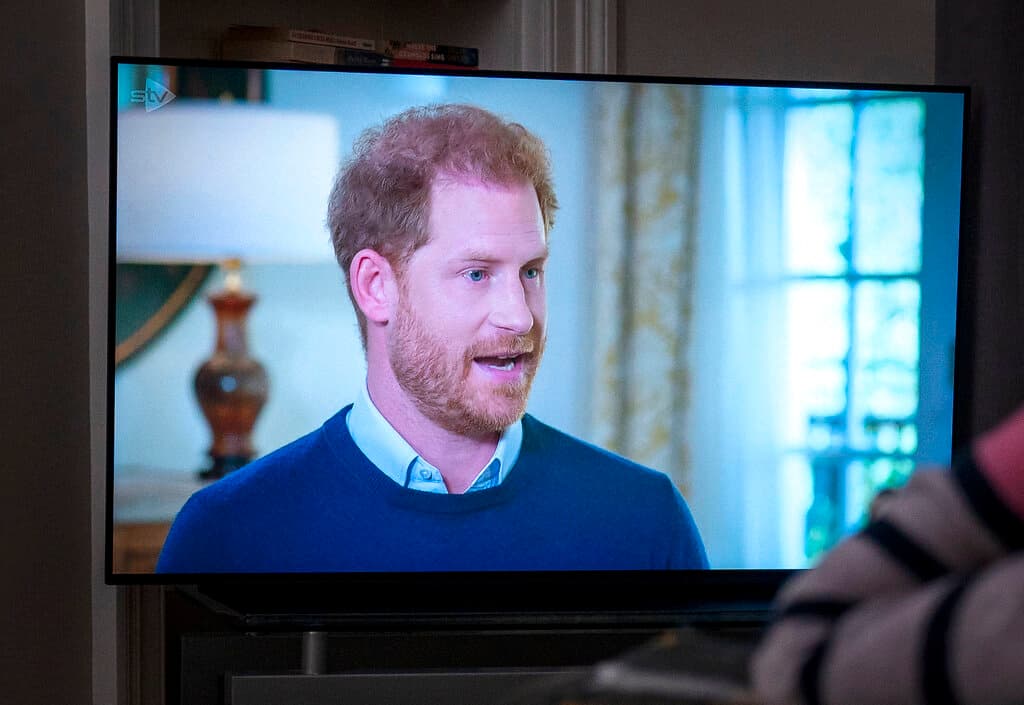Prince Harry Spreads Blame During Interviews About His New Book
Harry heaps his most acerbic words on Camilla, now queen consort, whom Charles married after divorcing Diana.

LONDON — The British press is the villain in self-exiled Prince Harry’s first interviews about his tell-all book “Spare,” out Tuesday, in which he places the blame firmly on the media for his decision, along with his wife Meghan, to renounce their royal duties and escape to new lives in southern California.
Harry’s memories of mourning the death of his mother, Princess Diana, recounted in an interview with Anderson Cooper for CBS’s “60 Minutes,” were just the beginning of never-ending battles with his older brother, Prince William, the heir to the throne now held by their father, King Charles III.
Harry in that interview heaps his most acerbic words on Camilla, now queen consort, whom Charles married after divorcing Diana. “She was the villain,” Harry said. “She was the third person in the marriage” — a phrase to describe Camilla’s intrusion between Diana and Charles. “She needed to rehabilitate her image,” and “having stories about you” was “what you have to do.”
Both William and Harry had opposed Charles’s marriage to Camilla. Harry’s inner rage shone through his calm appearance as he said there had to be “people or bodies left on the street.” While Camilla was “on the way to being queen consort,” he said, “there was open willingness on both sides to trade information.”
Harry, in his ITV interview, elaborated in still more detail how palace insiders vilified him and Meghan to “the level that my wife and I had to leave the country” after having “lost hope.” Always, “the tabloid media” was eager to blacken his name and that of his wife, he said.
“The one group of people that could have stopped this from happening were encouraging it to happen,” he told the ITV interviewer, Tom Bradby. They had been “briefing the press for over a decade.” It “breaks my heart,” he said, “that the British tabloid press has created this divide.” Indeed, he vowed that “the mission of changing the media in the U.K.” would be “my life’s work.”
Harry’s accusations against the media — and the backstage figures who played the media against him — raised the question of the degree to which the media should pry into private lives. It also disclosed the antagonism between the media and the royal family that is likely to undermine Britain’s ancient monarchy.
Polls show British citizens’ support of the monarchy is waning. Increasingly, voices are heard, particularly among members of the opposition Labor Party, calling for reducing the expense of the luxury of royalty and possibly abolishing it altogether. Compounding the issue, the monarchy essentially has no power over the elected government despite the tremendous coverage it gets in the British press.
The topic of the future of the monarchy did not arise, however, in either the ITV or CBS interviews. Neither conversation touched on substantive issues affecting the daily lives of British citizens, notably inflation and lack of medical facilities during the Covid epidemic.
The interviews were all about Harry, his relations with his father and brother, and the personal and emotional problems that he has endured especially after serving 10 years as an army officer, including two tours as a helicopter pilot in Afghanistan, from which he was discharged as a captain in 2015.
After all that he has endured, however, Harry seemed remarkably self-assured. Sure, he would like to again see his father, the king, and also William, who knocked him to the floor in a physical tiff after saying Meghan had been “rude.”
Harry seemed to have gotten over the fact that he was the “Spare,” the title of the book, next in line for the throne. (Now that William and Princess Kate have three children, Harry ranks fifth.) “I am not stuck in the past,” he told ITV. “I am very happy. I am at peace. I am at a better place than I have been.”

